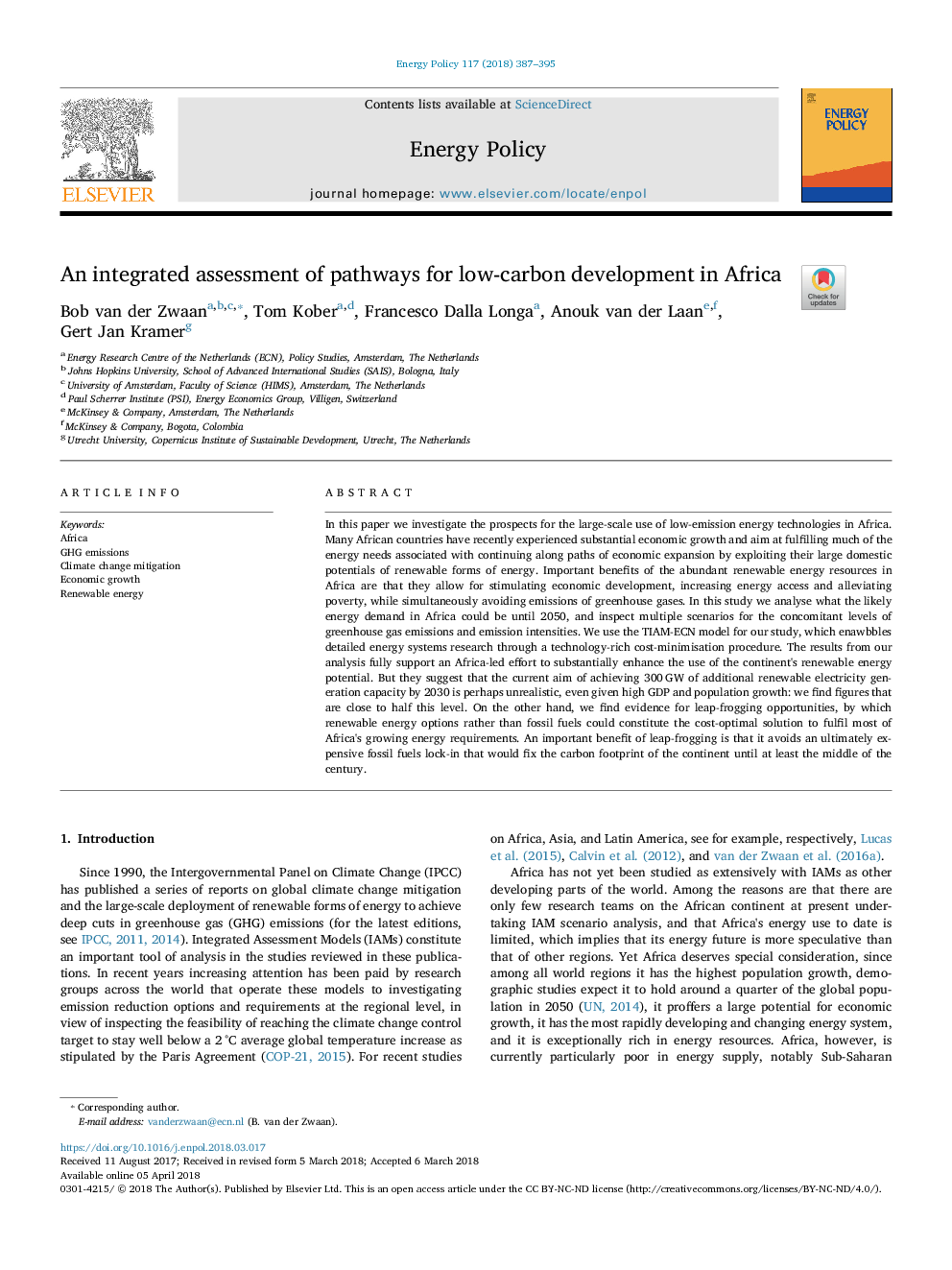ترجمه فارسی عنوان مقاله
ارزیابی یکپارچه از مسیرهای توسعه کم کربن در آفریقا
عنوان انگلیسی
An integrated assessment of pathways for low-carbon development in Africa
| کد مقاله | سال انتشار | تعداد صفحات مقاله انگلیسی |
|---|---|---|
| 99784 | 2018 | 9 صفحه PDF |
منبع

Publisher : Elsevier - Science Direct (الزویر - ساینس دایرکت)
Journal : Energy Policy, Volume 117, June 2018, Pages 387-395
ترجمه کلمات کلیدی
آفریقا، انتشار گازهای گلخانه ای، کاهش تغییرات اقلیمی، رشد اقتصادی، انرژی تجدید پذیر،
کلمات کلیدی انگلیسی
Africa; GHG emissions; Climate change mitigation; Economic growth; Renewable energy;

